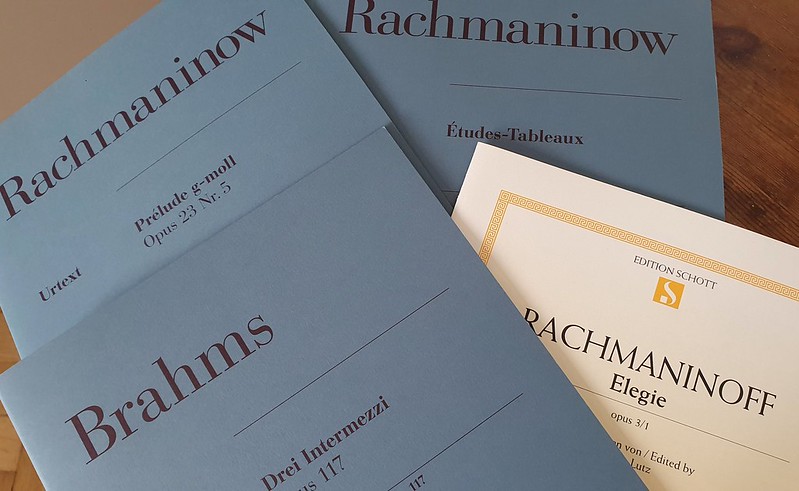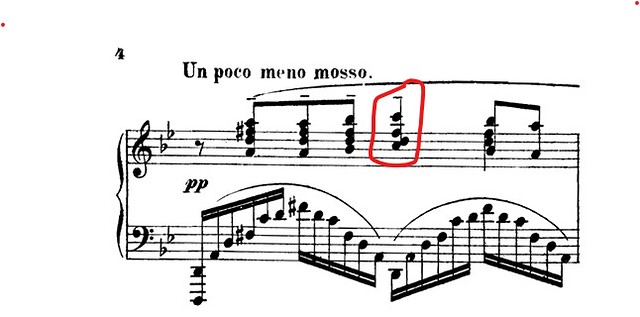It’s after midnight on a Friday night in Brussels. It hasn’t rained much today, but I napped this afternoon which tends to wreck in terms of sleeping. This is one of the reasons I have a digital piano of course (money being the other primary blocking in point in terms of a big acoustic piano). I played, late.
The focus this evening is Rebikov, the 4th piece for my Grade 6 exams. It’s been on the Grade 6 list in the past (therefore complies with the need for the self choice piece to be of equal difficulty of the other pieces). (in theory). I started it for the second time last night; truth be told the first time I looked at it, I had a LOT of problems with the left hand. Not to read, but to move between the notes with some element of grace. I set it aside. For the exam prep, I have been mostly working on the Mendelssohn, the middle of which has been causing major grief, and the Hillne which I have inexplicably completely forgotten. If you look at my goals page, you’ll see this is likely to be the last jazzy piece I do and in short, some of the styles in it are not instinctive to me. I do like how some of the chords fit together but I cannot commit them to memory and this is causing difficulty with the interpretation. I expected to be finished it and Mendelssohn’s nice Gondollied by end of July which is next Monday and I’m not there. But I also need to start the other two pieces with a little more seriousness, and the Bach is going very slowly at the moment. The Rebikov was stuck without petrol in the engine.
On second sight it does not appear to be as difficult as I imagined the first time I started it. I know that in my memory, what concerned me more than anything was the shapes I couldn’t make with my left hand. So I took the child honoured way of separating out the hands and built some experience with the right hand and that surprised me – it turned out to be surprisingly easy and it appears to have opened some doors to my mind. It has a beautiful melody, and I love the many triplets while recognising they will bring with them some 3:2 polyrhythms. But this is a journey. Then, instead of starting at the beginning with the left hand, I skipped to the last 10 or so bars, the close out. For this piece, it’s particularly beautiful and heart tugging. I get so much pleasure out of how it sounds, it distracts me from actually working on any of the rest of it.
Today, though, I bit that bullet. I’m really pleased with the progress on the opening 12 or so bars. There isn’t any consistency there, and I’m not always sure that I’m playing at my best at 11pm (if you heard my Mendelssohn just afterwards, you’d understand why I say this). Thing is, this was a desperate choice after realising some other choices (Reverie by Debussy) were probably too challenging. For the first time, I actually thought, you know, I like this. I like it enough that once this exam is done, I will keep it. I can’t say that about the Bach two part invention, not yet at least.
Rebikov has a waltz which I think is colloquially known as the Christmas Tree waltz. See here for a link to a video of it. I did actually eventually get that issue of Pianist so I have the sheets for it and anyway, I think he is dead long enough that it is up on IMSLP. It’s randomly on my learning list for when I have time and also can read music more fluently.


